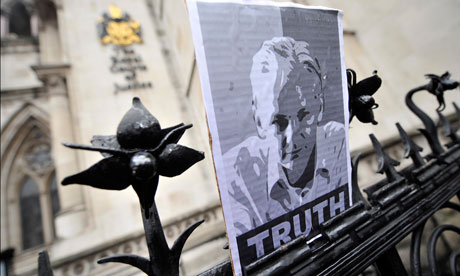NATO Members Warned About Anonymous
NATO leaders have been warned that the Anonymous “hacktivist” collective might have the capability to threaten member states’ security.
A report for the alliance by Lord Jopling, UK general rapporteur and Tory peer, provides a general (mostly factual) overview of the changing nature of the internet.
One key section deals with the use of social media tools to exchange information by people on the ground during the ongoing Arab Spring protests; another deals with the ongoing WikiLeaks affair and its fallout – and also covers the hack by Anonymous in solidarity with the whistle-blowing site.
Anonymous is becoming more and more sophisticated and could potentially hack into sensitive government, military, and corporate files. According to reports in February 2011, Anonymous demonstrated its ability to do just that. After WikiLeaks announced its plan of releasing information about a major bank, the US Chamber of Commerce and Bank of America reportedly hired the data intelligence company HBGary Federal to protect their servers and attack any adversaries of these institutions. In response, Anonymous hacked servers of HBGary Federal’s sister company and hijacked the CEO’s Twitter account.
Today, the ad hoc international group of hackers and activists is said to have thousands of operatives and has no set rules or membership. It remains to be seen how much time Anonymous has for pursuing such paths. The longer these attacks persist, the more likely countermeasures will be developed, implemented, the groups will be infiltrated and perpetrators persecuted.
Lord Jopling’s report is essentially a policy backgrounder and not a call to action. The document leaves it open as to how exactly members of the hacktivist collective might be “persecuted”, but the general thrust seems to be that this ought to be an extension of previous law enforcement crackdowns. NATO’s role if any in all this seems to be in locking down government and military servers rather than spearheading some military cyber-offensive, much less “taking out” Anonymous-affiliated chat channels.
Only a few years ago, cyberwar barely got a mention in NATO conferences, even in the wake of high-profile cyberattacks on Estonia in April 2007. The ongoing WikiLeaks saga along with the arrival of the industrial-control plant sabotaging Stuxnet worm have changed the game, and this is the real significance of Jopling’s report.

 Wikileaks has established a reputation for publishing sensitive materials
Wikileaks has established a reputation for publishing sensitive materials